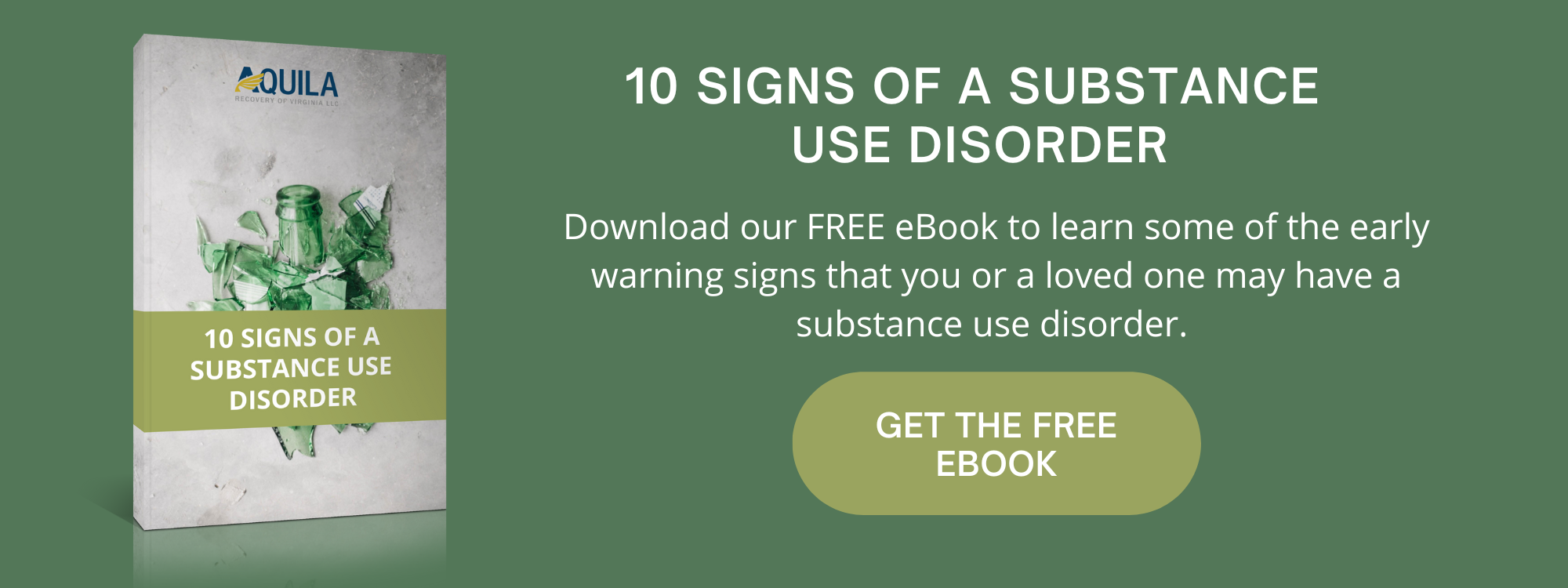Motivating Yourself to Get Sober: Tips & Tricks
Are you looking to start your journey toward sobriety? It's a brave decision and one that requires...

Addiction is a problem that affects countless lives globally. In America alone, over 20 million people have at least one addiction, yet only 10% receive treatment. This blog will shed light on the importance of addiction awareness and provide resources for help and support.
Let's explore further together!
Addiction is a complex and multifaceted condition that is characterized by compulsive drug or alcohol use despite negative consequences.
Addiction is a strong need to do or have something. It can come from many things like drugs, alcohol, and even activities like shopping or gaming. People get hooked on these because they cause good feelings in the brain.
Some people may also be more likely to become addicted if there are problems at home, stress, or a history of addiction in their family.
Addiction comes in two forms. The first is substance addiction. This type usually involves things like alcohol, drugs, or tobacco. People rely on these items and feel they can't stop using them.
Addiction awareness is crucial for individuals and society as it helps understand the impact of addiction, addresses stigma and shame, and promotes support and intervention.
Addiction hurts people in many ways. A person with addiction may get sick often. They might lose their job or have money troubles. They may fight with friends and family. Their schoolwork might suffer too.
Society also feels the pain of addiction. Schools can be less safe when students use drugs or alcohol. Businesses lose money if workers are not healthy or do not come to work because of addiction.
Healthcare costs go up for everyone when people need treatment for addiction problems.
So it's clear that we all need to think about how important it is to know more about addiction.
Stigma and shame surrounding addiction can be harmful and prevent individuals from seeking help. It is crucial to address these negative perceptions to create a supportive environment for those struggling with addiction.
By promoting empathy, understanding, and education, we can break down the barriers that contribute to stigma and shame. This includes challenging stereotypes, providing accurate information about addiction, and fostering open conversations about recovery.
Through compassion and support, we can empower individuals on their journey toward healing and encourage them to seek the assistance they need without fear of judgment or isolation.
National Recovery Month celebrates the journey to recovery from addiction and highlights the importance of support, education, and advocacy in promoting lasting sobriety.
National Recovery Month is an important initiative that aims to raise awareness about addiction and celebrate the journey of recovery. It serves as a platform to educate individuals and communities about the impact of addiction on individuals and society as a whole.
By participating in various events and activities during this month, we can show support for those in recovery, break down stigmas surrounding addiction, and promote compassion, understanding, and empathy towards individuals struggling with addiction.
Substance Abuse Prevention Month plays a crucial role in promoting awareness and prevention strategies to reduce substance abuse rates. By highlighting the importance of education, intervention, and support systems, we can work together to prevent addiction before it even starts.
There are many ways to participate in and support addiction awareness. Here are some ideas:

Substance Abuse Prevention Month plays a crucial role in promoting awareness and prevention of addiction.
Substance Abuse Prevention Month plays a crucial role in promoting awareness and prevention of addiction. It provides an opportunity to educate the public about the risks and consequences of substance abuse.
Through various initiatives, such as educational campaigns, community outreach programs, and prevention efforts, this month aims to empower individuals with knowledge on how to make healthier choices and avoid falling into addiction.
By highlighting the importance of prevention, Substance Abuse Prevention Month helps create a culture that prioritizes well-being and supports those at risk or struggling with addiction.
Addiction rates have been on the rise, with alarming statistics and concerning trends. Discover the contributing factors and learn why it's crucial to be aware of this growing issue.
Read more to find out how you can make a difference in your community.
Several factors have contributed to the increase in addiction rates. One major factor is easy access to addictive substances, such as prescription drugs and alcohol.
Another contributing factor is a lack of education and understanding about the risks and consequences of addiction. Additionally, social and environmental influences, such as peer pressure and stressful life events, can also play a role in driving addiction rates higher.
It is important to address these contributing factors to prevent further increases in addiction rates and promote overall well-being within our communities.
Explore the hotlines, helplines, and organizations offering support and education for addiction awareness. Discover ways to get involved in advocacy efforts and connect with others on their recovery journey.
Read more about these valuable resources that can make a difference.
If you or someone you know is struggling with addiction, there are hotlines and helplines available to provide support. They offer a listening ear and valuable resources to help individuals on their journey to recovery. Here are some of the hotlines and helplines you can reach out to:
Many organizations and programs are available to provide education and support for addiction. These include:

Harness the power of social media and online platforms to raise awareness, support advocacy efforts, and connect with others in recovery. Discover how these digital tools are transforming addiction awareness.
Read more about it now!
Awareness campaigns and advocacy efforts play a vital role in addressing addiction. They help to educate the public, reduce stigma, and promote understanding and compassion. Here are some ways in which these campaigns and efforts make a difference:
Connecting with others in recovery is a valuable part of the addiction awareness journey. By sharing experiences, challenges, and successes with individuals facing similar struggles, a sense of community and support can be cultivated.
This connection allows for empathy, understanding, and encouragement that helps individuals on their path to recovery. Through online platforms and social media, it is easier than ever to find virtual communities that provide resources, information, and a listening ear.
Building relationships with others in recovery not only offers companionship but also serves as a reminder that no one has to face addiction alone.
In conclusion, addiction awareness is crucial for individuals and society. It helps us understand the causes and types of addiction, while also addressing the stigma and shame surrounding it.
By participating in national recovery initiatives and substance abuse prevention programs, we can promote education, support, and empathy. Together, we can make a difference by providing resources and utilizing social media to advocate for change. Let's work towards a world where everyone has access to treatment, recovery, and hope. Reach to our counselor for help.
Are you looking to start your journey toward sobriety? It's a brave decision and one that requires...
Addiction is a complex disease that can be difficult to understand for those who haven't...
Setting goals is necessary in all aspects of life and substance use recovery is no different. Goals...